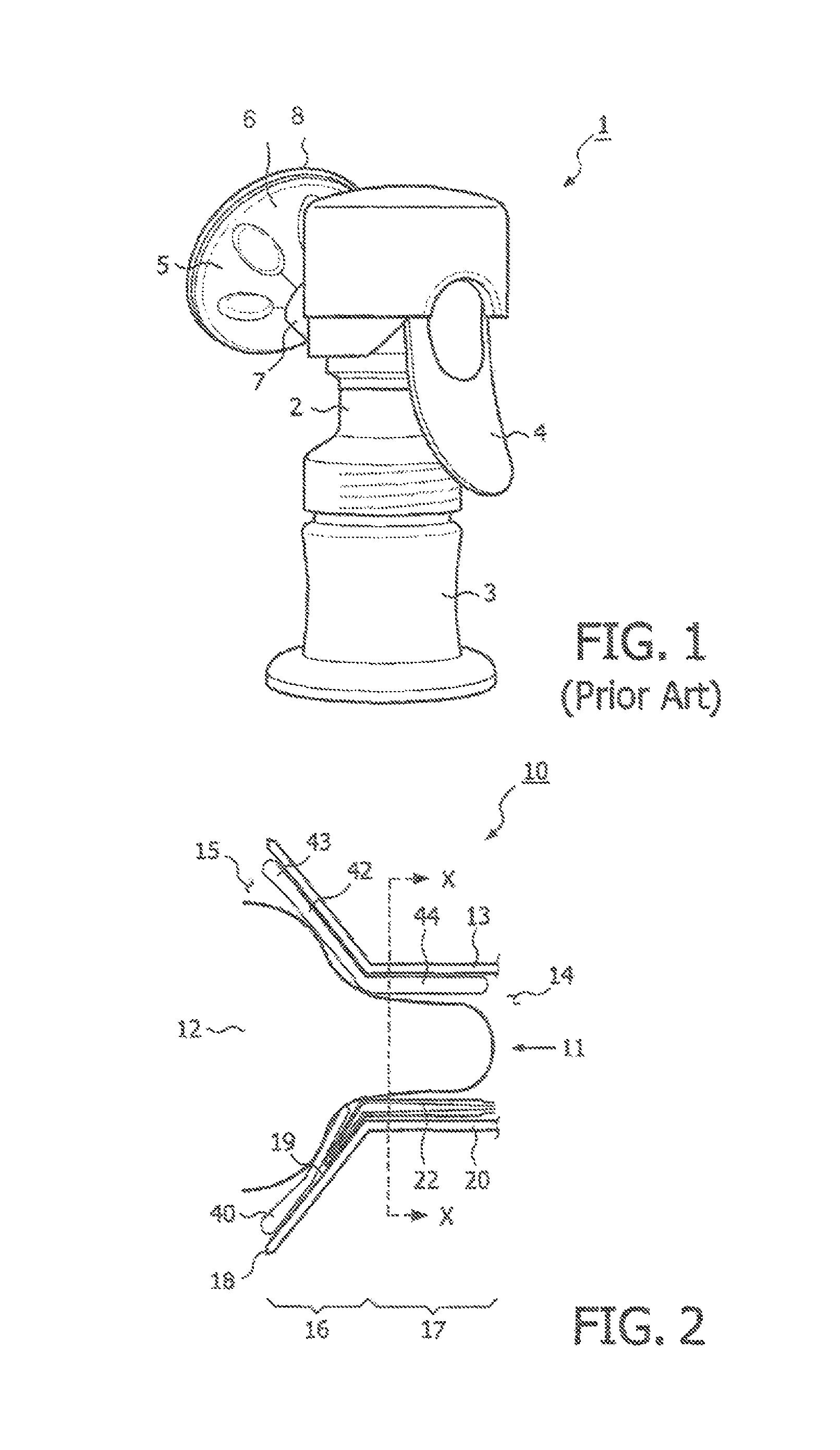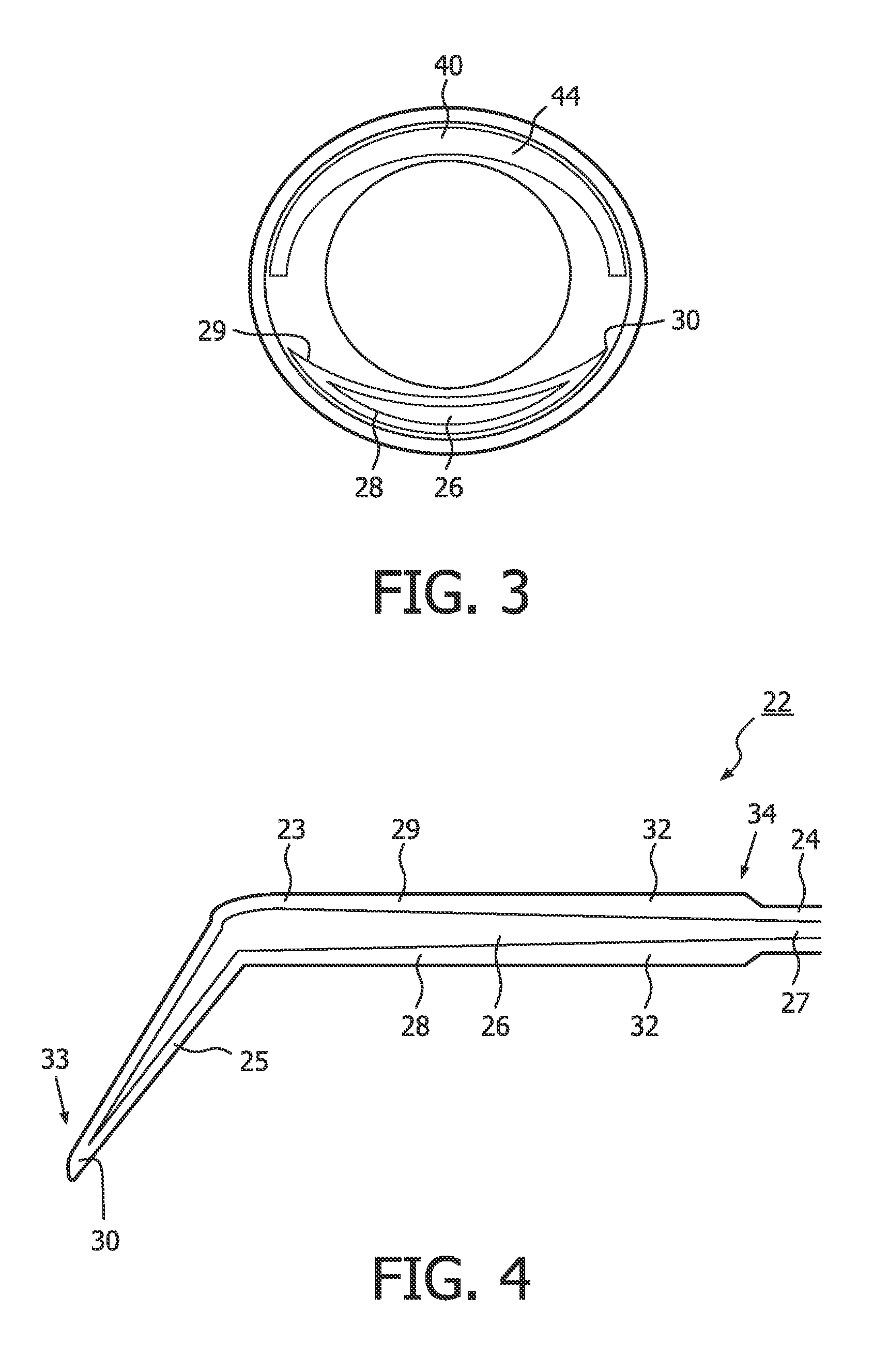Insert for a breast pump
a breast pump and insert technology, applied in the field of inserts for breast pumps, can solve the problems of inefficiency, discomfort or difficulty of users, and the inability to adjust the insert to the preference of mothers, so as to prevent friction discomfort, facilitate deformation, and facilitate the effect of predictability
- Summary
- Abstract
- Description
- Claims
- Application Information
AI Technical Summary
Benefits of technology
Problems solved by technology
Method used
Image
Examples
Embodiment Construction
[0036]Referring now to FIGS. 2 and 3, a breast receiving funnel 10 for a breast pump unit is shown. The breast pump unit (not shown) comprises a main body and a milk-receiving vessel. The milk receiving vessel, which may take the form of a feeding bottle for an infant or baby, is attached to the main body by a screw fitting, although it will be understood that alternative releasable attachment means may be used, such as clips (not shown).
[0037]A vacuum pump unit (not shown) is disposed in the main body, to create a vacuum, as will be described hereinafter and a handle (not shown) extends from the main body. The vacuum pump unit is motorised and the handle operates a motorised vacuum pump unit (not shown) which is powered by batteries disposed in the main body. Alternatively, the handle is manually operable to operate the vacuum pump unit. The vacuum pump unit is conventional and so no further description of the pump unit will be given here.
[0038]The breast receiving funnel 10 extend...
PUM
 Login to View More
Login to View More Abstract
Description
Claims
Application Information
 Login to View More
Login to View More - R&D
- Intellectual Property
- Life Sciences
- Materials
- Tech Scout
- Unparalleled Data Quality
- Higher Quality Content
- 60% Fewer Hallucinations
Browse by: Latest US Patents, China's latest patents, Technical Efficacy Thesaurus, Application Domain, Technology Topic, Popular Technical Reports.
© 2025 PatSnap. All rights reserved.Legal|Privacy policy|Modern Slavery Act Transparency Statement|Sitemap|About US| Contact US: help@patsnap.com



